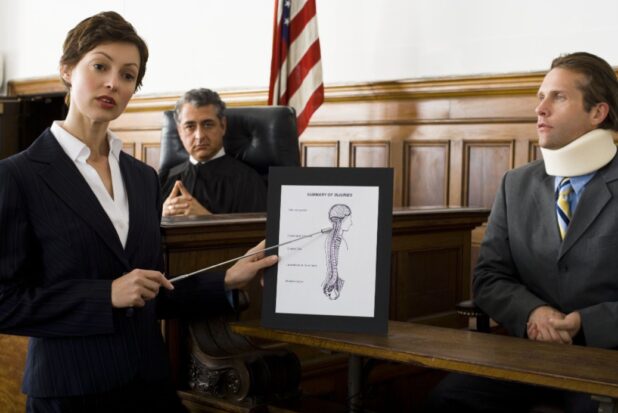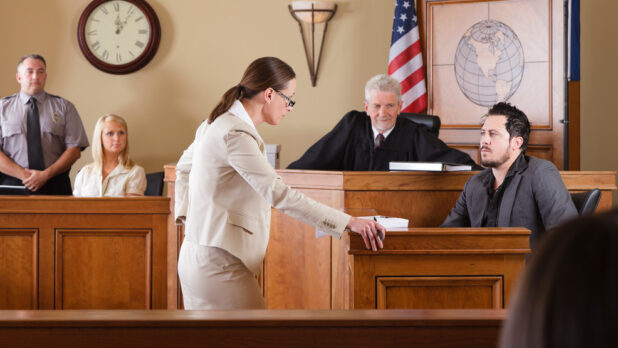Hearings are a serious matter. If you’re about to be a part of one, you are probably nervous because you don’t know what awaits you. Workers’ compensation hearings tend to be particularly interesting. But, if you never had one it is a good reason to be a little itchy. The good news is that you’re not alone in this. For most of us, events such as these hearings happen only a few times during our lifetime. So, if you never had one, you are probably looking to learn a few things in advance.
This is great, as we are going to give you a lesson on this. As you can see we’re on the same side, and an agreement between us will occur without a hearing. To get an idea of what the whole process is about, you need to know why there is one in the first place. It usually happens when there is a claim put forward by either an injured party, an employer, or a Bureau of Workers’ Compensation, and one or more parties involved in the process are not on the same page regarding a certain issue.
Sometimes, these issues could be smaller and concern only a small part of the initial claim, or it could be an objection to the claim itself. The claim usually gets brought out when there’s a disagreement regarding medication bills and various compensations. While for most people involved with the claim, things are often straightforward. But, for the party attending one of these hearings for the first time, it’s not like that. If you’re one of the first-timer you could have great help in seeing what are the six things to expect from your first workers’ compensation hearing in our opinion. Or you could seek legal help straight away, on this website here. It’s all up to you, but there’s no harm in reading the few paragraphs below, right?
Table of Contents
What Happens at The Hearing?

It’s where it all starts. You’ll be allowed to face a judge. The subject of your conversation will be your claim. It is the judge’s job to see your case. Is it valid and is your claim truthful? To have the best chance of presenting your claim properly you need to follow the dress code of courtrooms, talk the truth, address everyone with respect, and be there on time without delays. The hearing usually takes up to a few hours. If the subject is complicated it might take a few days. For any additional specifics and details, you need to talk to your attorney.
Who’ll Be There?
In most cases, the crew than handles these matters is the same. First of all, you’ll be there accompanied by your attorney. Furthermore, a judge will be present. Other parties include representatives and lawyers of the insurance company. It’s possible that some neutral parties also attend. In most cases, we’re talking about a reporter of the court. He is in charge of transcripts. Doctors and experts who worked on your issue are also involved. Your coworkers and other people from your company including the top brass usually attend.

Stating Your Case
The validity of your claim is important. This is best done by having documentation that proves your claim. The opposition at these proceedings will have their proof too, and both parties will be presenting them to a judge. Your documentation needs to include everything tied to your situation, which are items such as medical documentation, bills you haven’t or couldn’t pay, and various records of your employment. Opinions of doctors and experts shouldn’t be forgotten too. Depending on the state where your hearing is held the items you can hand over to the court could be quite specific and limited. Before submitting the evidence, you need to hand over the same files to the other parties involved. These are the rules of this hearing and if you don’t abide some of your evidence might be rejected.
Cross-Examination and Testifying
Of course, your testimony is vital to the case. You’ll be cross-examined by your and the lawyers of the opposition. You are obliged to testify n the subject of your injury, how it happened and what caused it. Also, you’ll be asked how it affected your life, and work obligations, and how was to overcome the new condition that you faced. This is all vital for the final decision, as in a case you couldn’t return o work, or your regular activities are no longer an option. Of course, you’ll be giving an oath before you say a word in the courtroom. When this part is over you’ll be hit and examined by the attorneys. In all instances, you must stick to the facts and speak only the truth. The judge will also partake in the examination.

Witnesses Turn
You’re never the only party involved. In most cases relating to a work injury that requires a workers’ compensation hearing, there are witnesses to the case. They will also be called to testify. They can be favoring you or they might be called by the insurance company or your employer. A witness can be a doctor who worked on your case, an expert, an insurance adjuster, or any of your coworkers who witnessed the injury happen. In a doctor’s case, their statement will be given in written form, while it is a rare occurrence that they appear as witnesses. Everyone who steps out as a witness is required to answer the questions of both parties, which ensures a fair hearing.
The Final Decision
A judge has the final say during any of these proceedings. The decision is not made on the same day as the hearing, The final decision doesn’t require an additional hearing. No, it will be sent to all parties involved via mail. Identical copies will be sent to everyone involved in the process as parties with interests. It usually happens in the period from one to three months. Regardless of the outcome, both parties have a right to appeal.
 World Magazine 2024
World Magazine 2024






